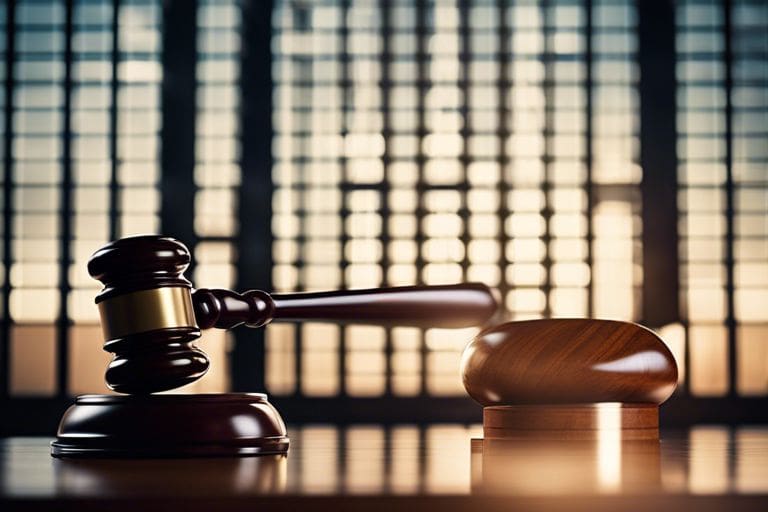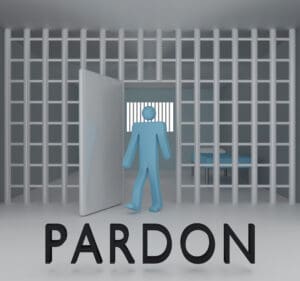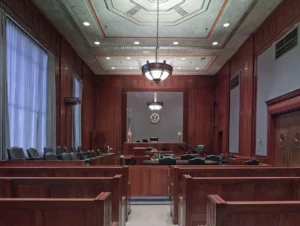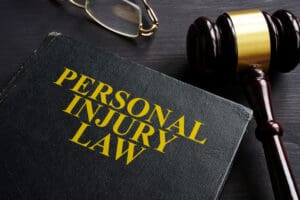Understanding detention laws and the legal protections available is crucial for individuals navigating the complexities of the criminal justice system. Knowing your rights during detention can significantly impact the outcome of your case. This comprehensive guide delves into the intricacies of detention laws, offering clarity on the process and rights associated with being detained.
What Are Detention Laws?
Definition and Scope
Detention laws refer to the legal framework that governs the circumstances under which an individual can be detained by law enforcement. These laws outline the rights of the detained individual and the procedures that law enforcement must follow. Detention can occur for various reasons, such as during a criminal investigation, for questioning, or after an arrest.
Types of Detention
Detention can be categorized into several types, including pre-arrest detention, post-arrest detention, and administrative detention. Pre-arrest detention involves holding an individual for questioning or investigation before any formal charges are made. Post-arrest detention occurs after an individual has been formally charged with a crime. Administrative detention involves holding individuals for reasons other than criminal charges, such as immigration violations.
Legal Protections During Detention
Right to Legal Counsel
One of the most important legal protections during detention is the right to legal counsel. This right ensures that a detained individual can consult with
an attorney and have legal representation during interrogations and court proceedings. Having legal counsel is crucial for protecting your rights and ensuring fair treatment under the law.
Right to Remain Silent
Another fundamental protection is the right to remain silent. Detained individuals are not required to answer questions or provide information that could incriminate them. This right helps prevent self-incrimination and ensures that individuals do not unintentionally harm their case.
Right to a Fair and Speedy Trial
Detained individuals have the right to a fair and speedy trial. This protection prevents prolonged detention without trial and ensures that individuals are promptly brought before a judge. The right to a speedy trial is designed to minimize the impact of detention on an individual’s life and prevent unnecessary delays in the legal process.
The Detention Process
Initial Detention
The detention process begins when an individual is taken into custody by law enforcement. This can occur during a traffic stop, at a person’s home, or in a public place. During initial detention, law enforcement officers must inform the individual of their rights, including the right to remain silent and the right to legal counsel.
Interrogation and Questioning
After initial detention, law enforcement may conduct an interrogation to gather information and evidence. During this phase, it is crucial for the detained individual to exercise their right to remain silent and request legal counsel. Interrogations can be stressful and intimidating, making it essential to have an attorney present to ensure that the individual’s rights are protected.
Booking and Processing
If the detention leads to an arrest, the individual will be taken to a police station for booking and processing. This involves recording personal information, taking fingerprints, and photographing the individual. The booking process also includes conducting a background check and searching the individual for contraband or evidence.
Legal Rights During Detention
Protection Against Unlawful Searches and Seizures
The Fourth Amendment of the U.S. Constitution protects individuals against unlawful searches and seizures. During detention, law enforcement must have probable cause or a warrant to conduct a search. If a search is conducted without proper authorization, any evidence obtained may be deemed inadmissible in court.
Right to Humane Treatment
Detained individuals have the right to humane treatment while in custody. This includes access to basic necessities such as food, water, and medical care. Law enforcement officers must ensure that detainees are treated with dignity and respect and that their physical and mental well-being is maintained.
Right to Challenge Detention
Detained individuals have the right to challenge the legality of their detention through a process known as habeas corpus. This legal mechanism allows individuals to request a court review of their detention to determine whether it is lawful. If the court finds that the detention is unlawful, the individual must be released.
Navigating the Legal System
Importance of Legal Representation
Navigating the legal system can be complex and overwhelming, especially for individuals who are unfamiliar with legal procedures and terminology. Having legal representation is crucial for understanding your rights and options during detention. An experienced attorney can provide guidance, represent you in court, and advocate on your behalf.
Steps to Take After Being Detained
If you or a loved one is detained, it is important to take immediate steps to protect your rights. First, remain calm and exercise your right to remain silent. Request legal counsel as soon as possible and avoid making any statements without an attorney present. Keep detailed records of your interactions with law enforcement and any actions taken during detention.
Preparing for Court Appearances
After being detained, you may be required to appear in court for hearings or trials. It is important to be prepared for these appearances by working closely with your attorney. Your attorney can help you understand the charges against you, gather evidence, and develop a defense strategy. Being well-prepared can significantly impact the outcome of your case.
Rights and Responsibilities
Understanding Your Rights
Understanding your rights during detention is crucial for protecting yourself and ensuring fair treatment. Familiarize yourself with the legal protections available to you and know when and how to exercise them. Your attorney can provide valuable information and support in understanding your rights.
Responsibilities of Law Enforcement
Law enforcement officers have a responsibility to uphold the law and protect the rights of detained individuals. They must follow proper procedures during detention, including informing individuals of their rights, conducting lawful searches, and ensuring humane treatment. Failure to adhere to these responsibilities can result in legal consequences and the dismissal of evidence.
Reporting Misconduct
If you believe that your rights have been violated during detention, it is important to report any misconduct. This can be done by filing a complaint with the appropriate law enforcement agency or seeking legal recourse through the courts. Your attorney can help you navigate the process of reporting misconduct and pursuing justice.
Additional Legal Protections During Detention
Protection Against Self-Incrimination
The Fifth Amendment protects individuals from being compelled to incriminate themselves. This right is crucial during detention and interrogation. Detained individuals should be aware of their right to refuse to answer questions that may incriminate them and should request legal counsel to guide them through the process.
Right to Inform Family or Friends
Detained individuals have the right to inform a family member or friend about their detention. This is essential for ensuring that someone is aware of their situation and can take steps to provide support, such as contacting an attorney. Law enforcement agencies must allow detainees to make a phone call to inform their loved ones.
Access to Medical Care
Detained individuals have the right to receive necessary medical care while in custody. This includes access to medications, treatment for pre-existing conditions, and emergency medical services. Law enforcement agencies are responsible for ensuring that detainees’ health needs are met promptly and adequately.
Importance of Understanding Local Detention Laws
Variations in State Laws
Detention laws and legal protections can vary significantly from state to state. Understanding the specific laws in your state is crucial for ensuring that your rights are protected. An experienced local attorney can provide valuable insights into state-specific detention laws and procedures.
Municipal and County Regulations
In addition to state laws, municipal and county regulations can also impact detention procedures. These local regulations may dictate how law enforcement agencies handle detentions, interrogations, and the treatment of detainees. Familiarizing yourself with these local regulations can help you better understand your rights during detention.
Role of Public Defenders
Access to Public Defenders
For individuals who cannot afford private legal representation, public defenders play a vital role in ensuring access to legal counsel. Public defenders are attorneys appointed by the court to represent indigent defendants. They provide essential legal support during detention, interrogations, and court proceedings.
Challenges Faced by Public Defenders
Public defenders often face significant challenges, including high caseloads and limited resources. Despite these challenges, they are dedicated to protecting the rights of their clients. Understanding the role and limitations of public defenders can help detainees set realistic expectations and advocate for their rights effectively.
Psychological Impact of Detention
Stress and Anxiety
Detention can have a profound psychological impact on individuals, leading to stress, anxiety, and other mental health issues. The uncertainty of the legal process, combined with the conditions of detention, can exacerbate these effects. Recognizing the psychological impact of detention is essential for providing appropriate support and ensuring humane treatment.
Access to Mental Health Services
Detained individuals should have access to mental health services to address the psychological impact of detention. This includes counseling, therapy, and access to mental health professionals. Ensuring that detainees receive proper mental health care is crucial for their well-being and can also impact the legal process.
Advocacy and Support Organizations
Non-Profit Organizations
Numerous non-profit organizations advocate for the rights of detained individuals and provide support services. These organizations offer legal assistance, educational resources, and advocacy efforts to protect the rights of detainees. Knowing which organizations to contact can provide valuable support during detention.
Community Support Networks
Community support networks, including family, friends, and local community groups, play a crucial role in supporting detained individuals. These networks can provide emotional support, financial assistance, and help navigate the legal system. Engaging with community support networks can make a significant difference during and after detention.
Legal Reforms and Advocacy
Efforts to Reform Detention Laws
Legal reforms aimed at improving detention laws and protecting detainees’ rights are ongoing. Advocacy groups and legal organizations work tirelessly to promote changes that enhance legal protections and ensure fair treatment for all individuals. Staying informed about these efforts can provide insights into potential changes that may impact your rights during detention.
Impact of Legal Reforms
Legal reforms can have a significant impact on the detention process and the rights of detainees. Understanding the implications of these reforms can help individuals and their attorneys navigate the legal system more effectively. Advocacy for continued legal reforms is essential for ensuring that detention laws remain fair and just.
Case Studies and Examples
Case Study: Unlawful Search and Seizure
In one notable case, a detained individual challenged the legality of a search conducted without a warrant. The court found that the search violated the Fourth Amendment, and the evidence obtained was deemed inadmissible. This case highlights the importance of understanding and exercising your rights during detention.
Case Study: Right to Legal Counsel
In another case, an individual was detained and questioned without being informed of their right to legal counsel. The court ruled that the individual’s rights were violated, and any statements made during the interrogation were inadmissible. This case underscores the critical role of legal representation during detention.
Example: Humane Treatment Violations
There have been instances where detained individuals have reported inhumane treatment, such as denial of medical care or physical abuse. These violations can lead to legal actions against law enforcement agencies and underscore the importance of ensuring humane treatment during detention.
Conclusion
Navigating detention laws requires a comprehensive understanding of your legal rights and protections. By familiarizing yourself with the legal framework and securing experienced legal representation, you can ensure fair treatment and protect your interests during detention. Whether challenging unlawful searches, exercising your right to remain silent, or preparing for court appearances, knowing your rights is crucial for navigating the complexities of the criminal justice system.
Having the right legal support can make a significant difference in the outcome of your case. It is essential to take proactive steps to protect your rights and seek justice if your rights are violated during detention. By understanding and exercising your legal protections, you can navigate detention laws effectively and safeguard your future. Additionally, being aware of the psychological impacts, leveraging community and organizational support, and staying informed about legal reforms can provide a comprehensive approach to dealing with detention-related issues.
Finding the Right Attorney for Detention-Related Legal Issues on Attorneys.Media
When dealing with detention-related legal issues, it is essential to have the right legal representation to navigate the complexities of the criminal justice system. The type of attorney best suited for this type of legality is a criminal defense attorney. Criminal defense attorneys specialize in defending individuals charged with crimes, including those who are detained during criminal investigations or after an arrest. These attorneys have extensive knowledge of criminal law, court procedures, and the strategies necessary to build a strong defense and advocate effectively for their clients’ rights.
Role of a Criminal Defense Attorney: A criminal defense attorney plays a crucial role in ensuring that your rights are protected from the moment of detention through the resolution of your case. They provide legal counsel on how to handle interactions with law enforcement, represent you during interrogations, and work to secure your release from custody. During court proceedings, a criminal defense attorney will present evidence and arguments to challenge the legality of your detention, seek the suppression of unlawfully obtained evidence, and advocate for the best possible outcome. They may highlight factors such as the lack of probable cause for your detention, violations of your constitutional rights, and any procedural errors made by law enforcement.
Steps to Find a Criminal Defense Attorney on Attorneys.Media: To find a qualified criminal defense attorney on Attorneys.Media, follow these steps:
- Utilize the Search Function: Use the search bar to look for attorneys specializing in criminal defense. You can refine your search by location, ensuring you find an attorney who practices in your jurisdiction and is familiar with local laws and court systems. This targeted search helps you find a lawyer who understands the specific legal environment and regulations in your area.
- Review Attorney Profiles: Each attorney on Attorneys.Media has a detailed profile that includes their areas of specialization, experience, education, and professional achievements. Carefully review these profiles to identify attorneys with extensive experience in handling detention-related cases. Look for information about their success rates, notable cases, and any additional certifications or accolades in criminal law. This thorough review helps you assess the attorney’s expertise and track record in defending clients in similar situations.
- Watch Video Interviews: One of the unique features of Attorneys.Media is the availability of video interviews with attorneys. These interviews provide insights into the attorney’s approach, communication style, and personality. Watching these videos can help you gauge whether the attorney is a good fit for your needs and if you feel comfortable working with them. The ability to see and hear the attorney discuss their practice and approach can be invaluable in making an informed decision.
Choosing the Right Attorney: When selecting a criminal defense attorney, consider factors such as their experience, reputation, and the level of personalized attention they provide. It is essential to choose an attorney who has a proven track record of successfully defending clients in similar situations. Additionally, ensure that the attorney is responsive, communicative, and willing to answer all your questions. The right attorney will not only defend your legal rights but also guide you through the emotional and logistical challenges of dealing with detention. By leveraging the resources available on Attorneys.Media, you can find a competent and dedicated criminal defense attorney to represent you and protect your interests.
By following these steps and criteria, you can ensure that you find an attorney who is well-equipped to handle your case and advocate effectively on your behalf. Whether you’re facing detention during a criminal investigation or challenging the legality of your detention, having the right legal representation is crucial for securing the best possible outcome.
Attorneys.Media Video Document References
- Is Personal Injury Part of Your Law Practice?
- As an Attorney, How Are You Generating Content for Your Online Presence?
- How Can You Help Potential New Clients Get Their Questions Answered?
- How Do You Differentiate Yourself When Someone Looks Online for Help?
- How Do You Differentiate Yourself as a Criminal Defense Attorney?
- Have You Been Thinking About Video Marketing for Your Law Firm?
- Should Attorneys Use Video Marketing to Attract New Clients?
- What Do Potential Clients See When They Research Your Name Online?
- How Attorneys.Media Can Help You





















